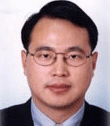Op-Ed Contributors
The roots of political science in China
By Wang Yong (China Daily)
Updated: 2010-01-07 07:52
 |
Large Medium Small |
If one wants to check out the rapid changes of political science in China over the past 30 years, In Pursuit of Harmony: An Academic Anthology of Zhao Baoxu provides a good reference. In the preface, former Foreign Minister Li Zhaoxing says: "The book is unique as a crystallization of a seasoned professor's research efforts in more than half a century."
As a senior professor at Peking University and a senior adviser to the Chinese Association of Political Science, Zhao Baoxu has long been engaged in teaching and researching political science and international politics. Zhao has garnered respect and esteem in academic circles at home and abroad.
With 21 articles collected, the volume addresses important issues of Chinese politics, economics and foreign policy, and contains mainly the English papers and lectures presented by Zhao to the international academic community since the early days of the country's reform and opening up.
| ||||
Zhao reviewed the trace of political science in China, from its creation, development, interruption, as well as resumption after the launch of the reform and opening up policy. In 1982, he made a speech entitled "Renaissance of Political Science in China" at the University of California, Berkeley. He pointed out that the reconstruction of China's social sciences in the 1950s was based on the Soviet model and because the former Soviet Union did not have the subject of political science, post-revolutionary China discarded the discipline of political science at the time.
Zhao wrote: "In the past 30 years, a series of historical and political events has shown that the abolition of the independent scientific research of political science is a mistake". Because of this abolition, under the long-term guidance of the "subjective idealism", serious mistakes including the "cultural revolution" were committed in China. In his view, the failure to study important issues, such as the scope of authority and mutual relations among government institutions; the relationship between the Party and government; the decision-making process; and solutions to protect the democratic rights of the people could be attributed as "a major source of serious mistakes committed".

He bemoaned that the rise and fall of Chinese political science is closely linked to and constrained by the political reality of China, arguing that "the closer the development of social science is linked to political reality, the more susceptible to interference from political realities the political science would be". However, he firmly believes that the future of political science in China will be bright.
The book also reflects on the "cultural revolution" (1966-76) and its implications on political reform. The book collects pieces of works about the relevant issues of Chinese political reform, such as the article entitled "A political transition: From the rule of man to the rule of law." He stressed that the disaster of the "cultural revolution" has stirred people up to demand that China must start its reform and opening up, and only by resisting the rule of man and establishing the rule of law would a stable political environment be created for economic development. This wide consensus should be counted as a major driving force to the continuous progress of contemporary China.
On the other hand, he gave a positive assessment of the democratic politics of developed countries, but also emphasized the importance of the coexistence of different development models. Derived from personal experience and made in the early years of the reform, these remarks have moved foreign audiences, and left them with a new understanding of China's reform process.
The anthology also contains several essays written by Zhao, addressing the issue of world peace through traditional Chinese values. These works reflected his profound understanding of the classical works and their practical value to the contemporary world. His interpretation of China's affairs is not publicity or duplication of official policies, but rather independent thinking derived from his own rich political experience in China.
The author is a professor of the School of International Studies at Peking University and the director of the university's Center for International Political Economy.
(China Daily 01/07/2010 page8)










